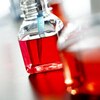MABE974 Sigma-AldrichAnti-Ser/Thr-protein kinase Nek2 Antibody, clone 5D2.1
This Anti-Ser/Thr-protein kinase Nek2 Antibody, clone 5D2.1 is validated for use in Western Blotting, Immunocytochemistry for the detection of Ser/Thr-protein kinase Nek2.
More>> This Anti-Ser/Thr-protein kinase Nek2 Antibody, clone 5D2.1 is validated for use in Western Blotting, Immunocytochemistry for the detection of Ser/Thr-protein kinase Nek2. Less<<Recommended Products
Overview
| Replacement Information |
|---|
Key Spec Table
| Species Reactivity | Key Applications | Host | Format | Antibody Type |
|---|---|---|---|---|
| H, M | WB, ICC | M | Purified | Monoclonal Antibody |
| References |
|---|
| Product Information | |
|---|---|
| Format | Purified |
| Presentation | Purified mouse monoclonal IgG2bκ antibody in buffer containing 0.1 M Tris-Glycine (pH 7.4), 150 mM NaCl with 0.05% sodium azide. |
| Quality Level | MQ100 |
| Physicochemical Information |
|---|
| Dimensions |
|---|
| Materials Information |
|---|
| Toxicological Information |
|---|
| Safety Information according to GHS |
|---|
| Safety Information |
|---|
| Storage and Shipping Information | |
|---|---|
| Storage Conditions | Stable for 1 year at 2-8°C from date of receipt. |
| Packaging Information | |
|---|---|
| Material Size | 100 μg |
| Transport Information |
|---|
| Supplemental Information |
|---|
| Specifications |
|---|
| Global Trade Item Number | |
|---|---|
| Catalogue Number | GTIN |
| MABE974 | 04055977181623 |
Documentation
Anti-Ser/Thr-protein kinase Nek2 Antibody, clone 5D2.1 SDS
| Title |
|---|
Anti-Ser/Thr-protein kinase Nek2 Antibody, clone 5D2.1 Certificates of Analysis
| Title | Lot Number |
|---|---|
| Anti-Ser/Thr-protein kinase Nek2, clone 5D2.1 - 3321807 | 3321807 |
| Anti-Ser/Thr-protein kinase Nek2, clone 5D2.1 - 4130131 | 4130131 |
| Anti-Ser/Thr-protein kinase Nek2, clone 5D2.1 -Q2586394 | Q2586394 |
Technical Info
| Title |
|---|
| Characterization of Estrogen Receptor α Phosphorylation Sites in Breast Cancer Tissue Using the SNAP i.d® 2.0 System |
| White Paper: Further considerations of antibody validation and usage. |













